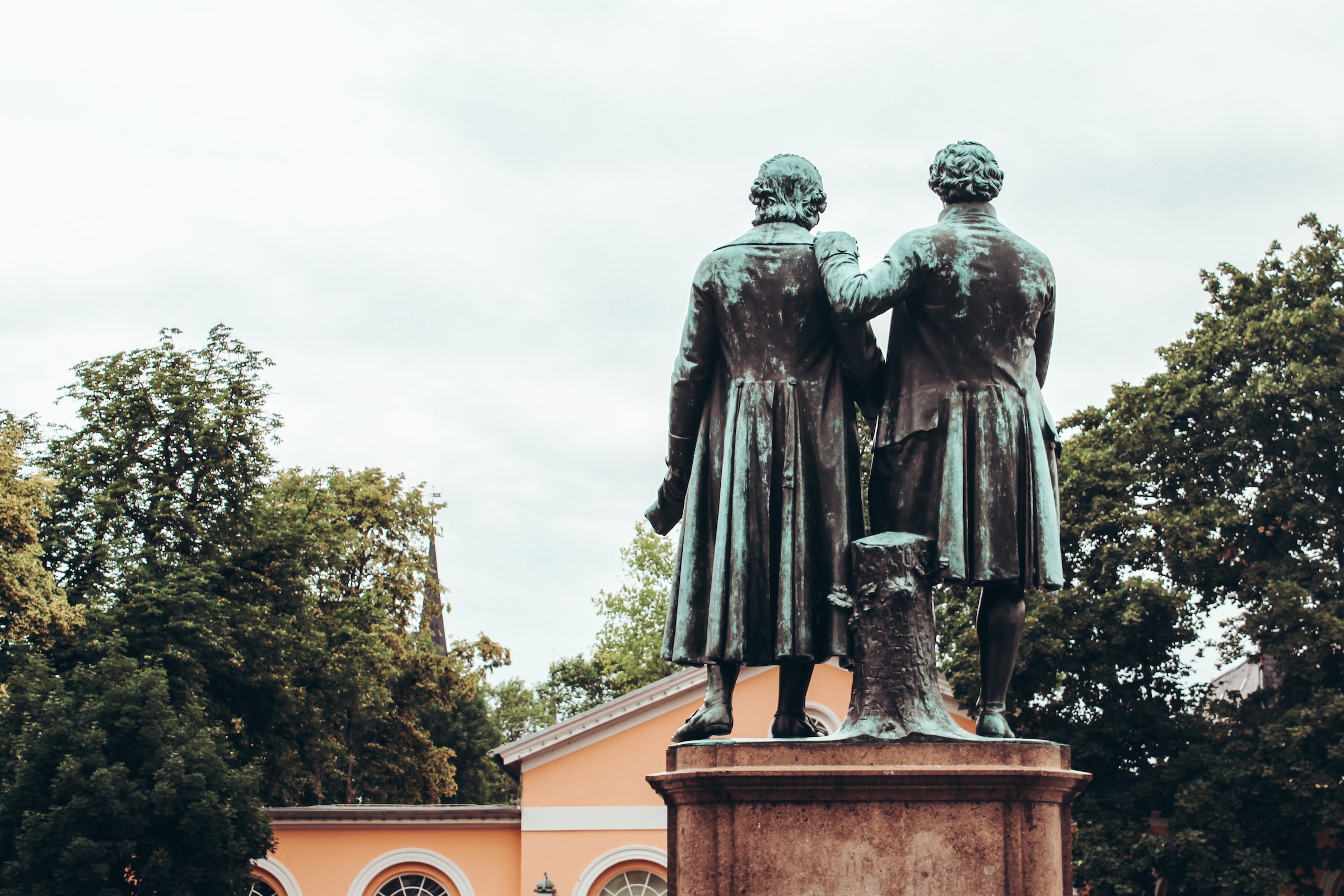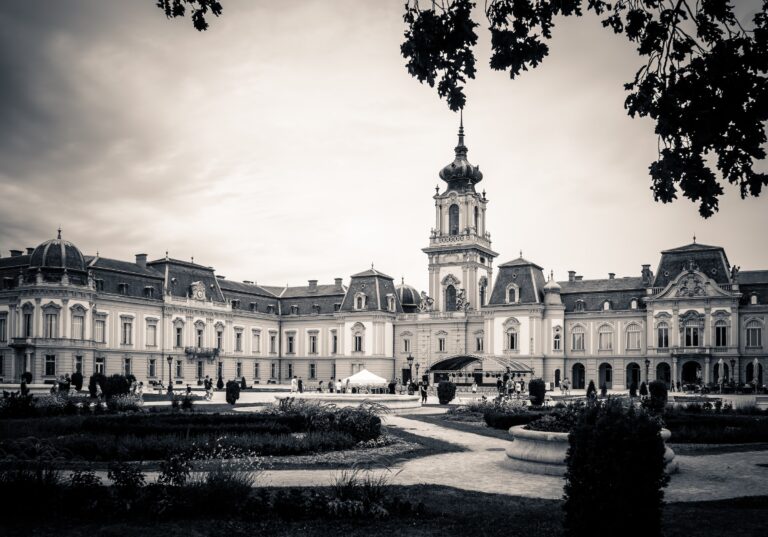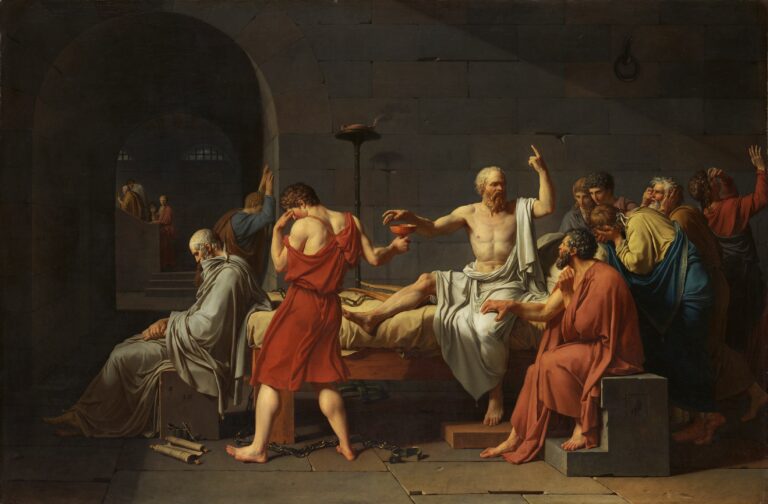“Nothing else in the world is so powerful
as an idea whose time has come.”
Victor Hugo
Politics is a struggle of ideas. Political struggles are conflicts of ideas that provide day-to-day battles with ongoing guidance and intensity. Value struggles often disguise themselves as legal disputes, geopolitical conflicts of interest, or economic and redistributional disagreements. Yet everyday politics is just a proxy war of values: current political debates are indirect clashes between values fitting into different worldviews. Individual political parties also operate based on organized systems of ideas, i.e. ideologies; the standards of their activity belong to the world of the intellect, even if they vehemently deny this. The power of ideas is so strong that even “non-ideology” is an ideology itself.
Behind business-as-usual political brawls, there are still clashes of different concepts. Based on ideas and ideologies, they traverse the human imagination and seek their path to realization. The projection envisaging the hollowing out and even death of ideas, occupying the horizon of political thinking at the turn of the 20th and 21st centuries, was a machination of one of the great ideas, liberalism. It coined the “End of History” thesis with the aim of discrediting all other stories; its arrogantly proclaimed neutrality was anything but neutral, and the idea of the “end of ideologies” only served to enforce its own ideology.
The return of ideas, the escalation of their conflict, and their increasingly intense clash will first sweep depoliticizing liberalism out of the way, after which the struggle of ideas will recommence on the newly cleared, post-liberal battlefield. Therefore, the world of ideas is far more important than what economic weeklies or foreign policy journals attribute to it. Behind and above visible conflicts in current affairs, opposing worldviews and idea-based ideologies are at odds with each other. After decades of ideological disengagement, ideas are taking revenge. Now, we first need myths to have ideas, ideas that construct our worldview.
I
From the three-tiered ideology of the French Revolution, liberalism spent two centuries privatizing freedom, while the Left collectivized equality and the representation of brotherhood was left to conservatism, which was opposed to the former two – sometimes tactically allied – modern ideologies from the outset. The three great wars of the 20th century (World Wars I and II, and the Cold War) were actually different phases of a single, global war spanning almost a whole century. This process can be interpreted as a struggle of armed ideologies, more closely between American liberalism and competing European forms of collectivism (nationalisms, national socialism, and communism.)
In the 19th century, it was commonplace to understand politics as the conflict of ideas. The beginning of the century was a reactionary period studded with counter-revolution, restoration, Romanticism and religious renewal. Poets, writers and philosophers of German idealism all set out in pursuit of Geist – spirit – to explain the changing world. In his poem The Spirit of the Time, Hölderlin even addressed: “For too long now you’ve prevailed above my head, / In your darkened cloud, the god of the age.” According to Herder, the “power of Zeitgeist is enormous but silent.” Hegel thought himself wise enough to construct an entire philosophical system of tracing the world spirit (Weltgeist), during which he repeatedly determined the place and time of the spirit of the time (Zeitgeist). Hegel captured the “stage of development reached by the spirit” in the distinct mentality of the era. Hegel’s monumental historical construction – the “algebra of the universe,” as he referred to it – also aspired to be a description of world history; as a sequence of the world spirit’s phases, it was meant to reflect the ideas, thought, and spirit of each age.
Classical German idealism produced a series of philosophers of history (Wilhelm Dilthey, Friedrich Meinecke, Ernst Troeltsch, Eduard Spranger, Oswald Spengler), who systematically broke down human history into the realization of Great Ideas. Nietzsche argued that “thoughts that come on doves’ feet guide the world.” Tibor Joó, a Hungarian expert of the highly fruitful discourse on the subject, pointed out that “the spirit of the age is the unit of human life,” bringing together the characteristic behavior, sentiment, and worldview of a certain era. In every case, it is expressed by the products of the culture it gave rise to.
In contrast, the 20th century can be interpreted as “the story of the gradual windup of history” (András Lánczi). This is linked to the fact that with the end of the great 20th-century wars (1918, 1945, 1989), the intention was to discredit not only totalitarian ideologies but also ideas themselves. Since the final decade of the previous century and the demise of ideologies, the age of Leitidees seemed to be over. Hegel would have felt uncomfortable in the early 21st century, when spiritlessness became the spirit of the age.
II
The “low tide of the spirit” was followed by the end of ideas and an age of mental exhaustion. The lack of ideas meant a loss of ideals and resulted in eventlessness; intellectual emptiness was disturbed only by the clinking together of hollow post-ideologies. Sometime between 1989 and 2001, unimaginability and mundane ordinariness shaped the historical end-of-season and the birth of the new millennium into a common, indistinct period.
However, the most spectacular processes within the major aspirations of an age can be identified in political ideas and their struggle with each other. That is why overcoming political disagreements has long been the intention of those seeking to eradicate politics once and for all. They are the ones who either long for an apolitical utopia based on abstract philosophical premises or are motivated by far more prosaic parochialism.
The essence of this process, which Carl Schmitt called Entpolitisierung or depoliticization, is the dissolution of mutually exclusive political poles in a common field where a conflict arising from the clash of interests or values cannot emerge in the first place. Although Schmitt saw this approach developing in connection with efforts to end the struggle of states against each other (“eternal peace,” League of Nations, global governance), such an intent also appears regularly within states. Appearing in a variety of forms since the 16th century, the project of depoliticization and neutralization reaches its pinnacle with the technologically organized global civilization.
Thus, the struggle of political opposites against each other either bothers those seeking to abolish politics par excellence or is a major element of status quo rhetoric. An example of the former is the multitude of socially liberal and pacifist views, as well as those approaching social issues solely from the technical conditions of wealth redistribution. Their voices are sometimes amplified by texts proclaiming the death of ideas and ideologies. The latter view is well reflected by the status of the Right in Hungary as “challenger” and “rebel”, calling into question the standing order of the post-communist regime from 1990 onward. The Right is accused of inciting conflict by left-wing and liberal intellectuals seeking to downgrade politics to a value-neutral, redistributional issue. From this perspective, values are displaced by mechanisms, engaging in politics is substituted for “expertise,” and conflict is discarded in favor of the post-communist, (neo-)liberal status quo. While the Right understands the nature of politics, the liberal Left seeks to change it; the former is heir to Hobbes, the latter to Kant.
Some years prior to the ideological turbulence of the late sixties, Daniel Bell argued in his 1960 book The End of Ideology that amid the Cold War, the globalization of economic relations, and a mass consumer society, “old” ideologies had become redundant. In other words, Bell claimed that having achieved its goal in Western culture, the system of ideas rooted in 1789 slowly became obsolete. The intensifying leftist wave in the second half of the sixties, reaching its peak in 1968 and culminating in the success of expansionist Soviet foreign policy in the seventies, finally dispelled the opinion that the world’s ideological struggles were coming to an end. Student uprisings, the Chinese Cultural Revolution, the Second Vatican Council, the struggles around decolonization, the Khmer Rouge, and the debate over the Western welfare state all showed that left-wing and right-wing views were experiencing a renaissance. It became clear that ideas matter.
III
Forty years after the American sociologist’s book, another testimony to “endism” was published. Francis Fukuyama expanded his article The End of History, delivered as a lecture at a neoconservative conference in Washington, D.C. in the summer of 1989, i.e. before the demolition of the Berlin War, into a book three years later. In the volume, he transformed Nietzsche’s fear of the “last man” into an optimistic prophecy with the help of the Kojèvian mutation of Hegel’s philosophy of history.
Fukuyama pointed out the demise of great deeds and subversive ideas, after which there is no longer any obstacle to the birth of a “last man” longing for consumerism, mutual recognition, and the global spread of liberty. Fukuyama’s basic premise was that following the collapse of the communist empire, the only alternative to remain on the global stage was the American-style cohabitation of liberal democracy and capitalism. This, he argued, represents universal values that are acceptable and even desirable for all people on earth, regardless of their differences in ethnicity, language, religion, and culture.
Hegelian philosophy of history prevailed in 1989: just as prescribed by the three consequential stages of the development of world spirit (thesis → antithesis → synthesis), the liberal version of Hegelianism triumphed in the aftermath of its right-wing and left-wing variants, fascism and socialism. Liberal democracy and a technologically advanced consumer society, the expansion of global free trade, the export of American democracy, and the institutions of the Washington Consensus guarding the New World Order (UN, EU, European Central Bank, IMF, World Bank, WTO) promised to resolve political calamities. This historical situation fit well the postmodern condition, in which there are no more so-called “grand narratives” (Jean-François Lyotard).
Whether we look at books from the sixties describing the extinction of ideas or literature from the nineties offering similar speculations, not to mention manifestoes based on the nondescript governmental philosophies of the early 21st century, it is apparent that liberalism is both the mastermind and the beneficiary of blurring the line between Left and Right.
It was not the Left that integrated the Right or vice versa but liberalism that dissolved them both and incorporated them into itself!
The text is an expert from Márton Békés’ book: Cultural warfare: The theory and practice of cultural power. Translated by Ferenc Sullivan, Language editors: Liz Heflin, Patrick Egan. Foundation for Research on Central and Eastern European History and Society, Budapest, 2022. Originally published as Békés Márton: Kulturális hadviselés. A kulturális hatalom elmélete és gyakorlata.Közép- és Kelet-európai Történelem és Társadalom Kutatásáért Közalapítvány, Budapest, 2020.




